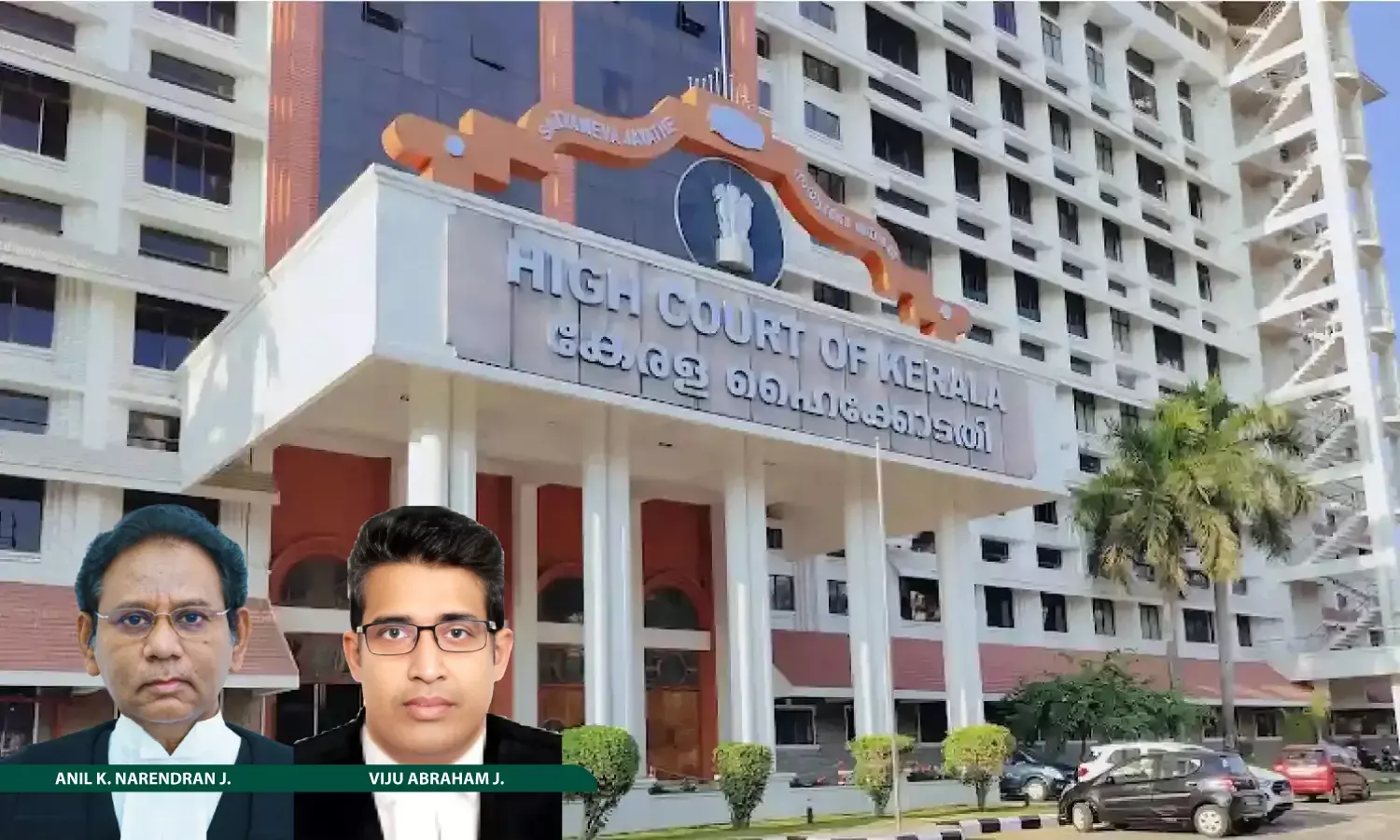Hindu Temples Represent Culmination Of Religious Aspirations Of Society: Kerala High Court On Alleged Disruptions In 2024 Thrissur Pooram Festival
The Kerala High Court remarked that the festivals are the expression of a community’s joy, exuberance, devotion and pride and are also an idiom of a community’s cohesiveness.

The Kerala High Court remarked that Hindu Temples represent the culmination of social and religious aspirations of a society.
The Court remarked thus in a batch of Writ Petitions filed by the devotees of Lord Vadakumnathan in which the common issue was regarding the conduct of Thrissur Pooram at Vadakkumnatha Kshethramaidanam of Sree Vadakkumnathan Devaswom, which is under the management of Cochin Devaswom Board.
A Division Bench of Justice Anil K. Narendran and Justice Viju Abraham observed, “According to ‘Agama Sastra’ Hindu temples represent the culmination of social and religious aspirations of a society. The temple is the focal point in the life of a community and often represents its pride, identity and unity. It draws into its fold people from its various segments and denominations and binds them together. The worship that takes place in the sanctum santorum and within the temple premises is important; so are the festivals and occasional processions that involve the direct participation of the entire community. They complement each other.”
The Bench added that while the worship of the deity in the sanctum sanctorum might be an individual’s spiritual or religious need; the festivals are the expression of a community’s joy, exuberance, devotion and pride and are also an idiom of a community’s cohesiveness.
Senior Advocate S. Sanal Kumar represented the Petitioners while State Attorney N. Manoj Kumar, Sr. G.P. S. Rajmohan, and Senior Advocate P. Viswanathan represented the Respondents.
Facts of the Case
The Petitioners i.e., the devotees of Lord Vadakumnathan sought to declare that interference of State Government and its machineries in the administration of Temple by use of Police force and thereby obstructing centuries old rituals, traditions and customs are violative of religious freedom guaranteed under the Constitution of India. They further sought direction to frame appropriate guidelines, to govern the conduct of the police authorities during the religious festivals and temple ceremonies, giving due regard to the rituals and customs of the temple as well as the religious right of devotees to spectate/take part in the essential religious rituals, customs, and practices followed at the temple.
They also sought disciplinary action against the officials for their wilful actions allegedly disrupting the rituals and traditions associated with Trissur Pooram. Various reliefs were sought in the Petitions for conducting an enquiry in connection with the incident that happened in connection with Thrissur Pooram festival of the year 1199ME (2024).
Court’s Observations
The High Court in the above context of the case, ordered, “Another relief sought for in these writ petitions is regarding formulation of a comprehensive scheme/guidelines/ standard operating procedure for proper conduct of Thrissur Pooram in future. On the above aspect, the learned State Attorney would point out a joint meeting convened online on 01.03.2025, which was presided over by the Chief Minister, which was followed by another joint meeting convened on 14.03.2025 at Thrissur Collectorate, which was presided over by the Devaswom Minister.”
The Court further directed that the State Attorney would submit that a copy of the minutes of the meeting are being placed on record, along with a memo, after serving copy to the counsel on both sides.
“The Travancore-Cochin Hindu Religious Institutions Act, 1950, was made for making provisions for the administration, supervision and control of incorporated and unincorporated Devaswoms and of other Hindu Religious Endowments and Funds”, it noted.
The Court also directed the State to ensure proper and effective crowd management during Thrissur Pooram of the year 1200ME (2025) scheduled to be held on May 6 and 7, 2025 based on the Police Bandobast Scheme already prepared.
“The District Police Chief, Thrissur City shall ensure that experienced police personnel are posted to supervise crowd management at important locations. The District Collector, Thrissur, shall ensure that there is proper coordination in the activities relating to Thrissur Pooram by the officers of the District Administration”, it ordered.
The Court concluded that the Cochin Devaswom Board, Paramekkavu Devaswom and Thiruvambadi Devaswom shall ensure that the entire activities in connection with Thrissur Pooram for the year 1200ME (2025), are performed promptly, according to the practice prevalent in Vadakkumnathan Devaswom.
Accordingly, the High Court disposed of the Writ Petitions and issued necessary directions.
Cause Title- P. Sudhakaran v. State of Kerala & Ors. (Neutral Citation: 2025:KER:29261)
Appearance:
Petitioners: Senior Advocate S. Sanal Kumar, Advocates H. Kiran, Vivek A.V., Ammu M., Sreehari V.S., and Sherin Davis.
Respondents: State Attorney N. Manoj Kumar, Sr. G.P. S. Rajmohan, Senior Advocate P. Viswanathan, Advocates K.P. Sudheer, N.K. Subramanian, and Shibu Joseph.


